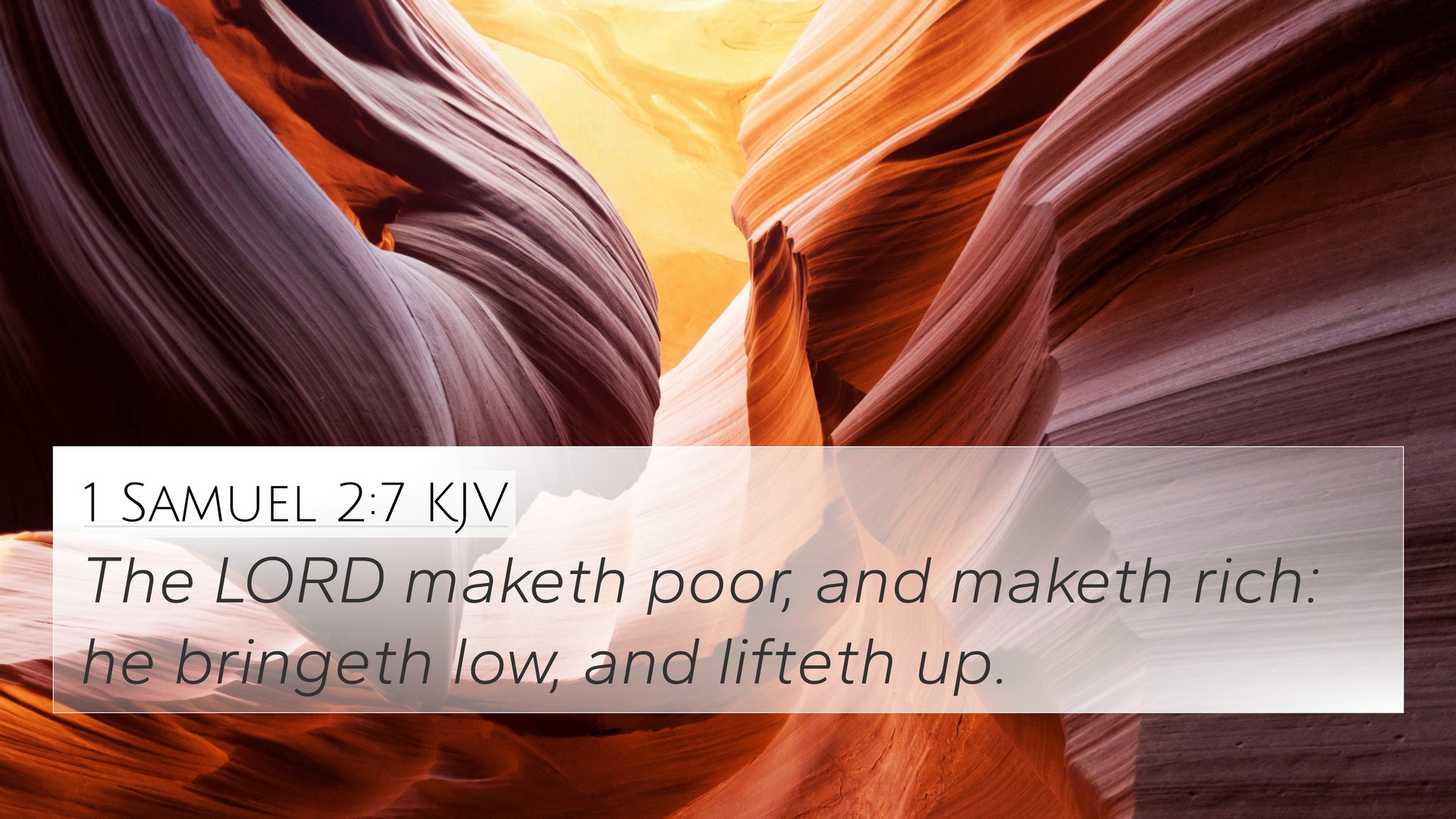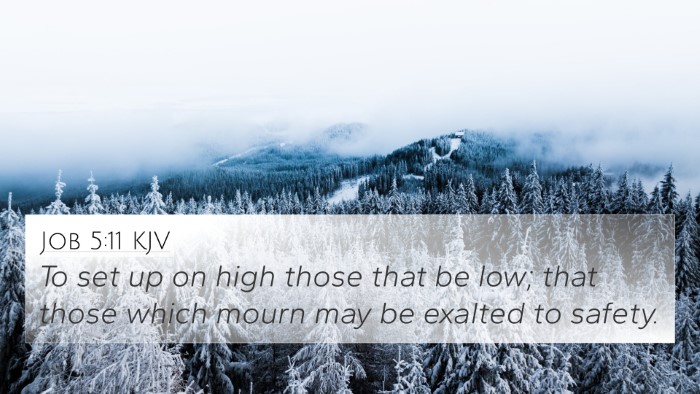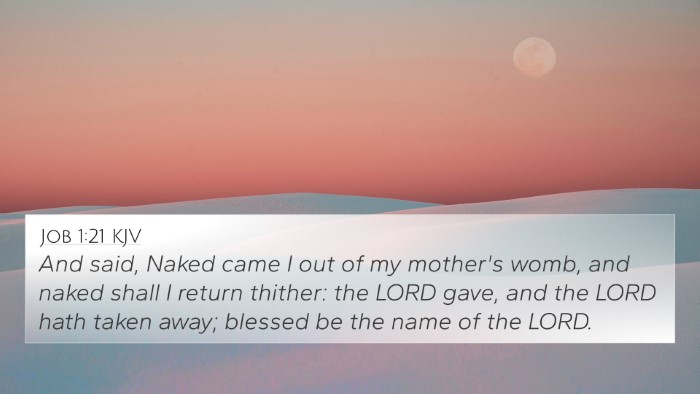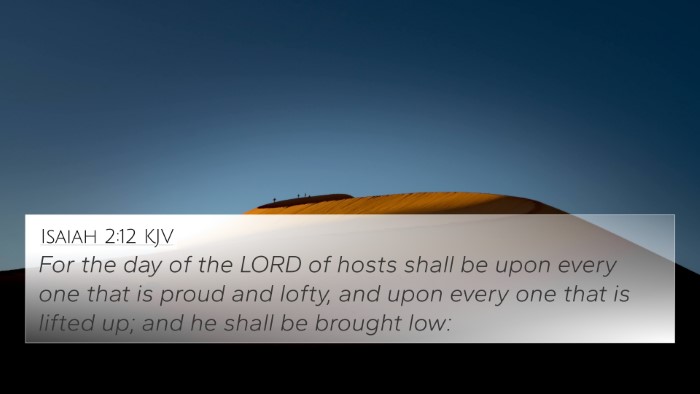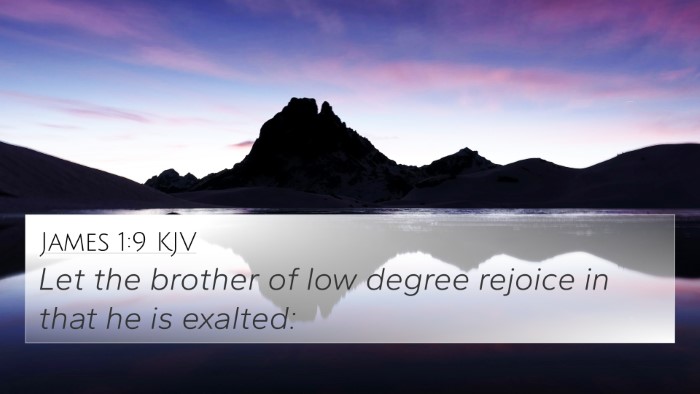Understanding 1 Samuel 2:7
1 Samuel 2:7 states: "The Lord makes poor and makes rich; He brings low and lifts up." This verse highlights the sovereignty of God in the affairs of humanity, emphasizing His authority over wealth and position.
Verse Meaning and Interpretation
This verse contrasts the conditions of poverty and wealth, illustrating God’s ability to alter one’s circumstances. Through a synthesis of public domain commentaries, we can uncover a deeper meaning of this verse.
Insights from Commentaries
Matthew Henry's Commentary
According to Matthew Henry, this verse emphasizes that all blessings, including material wealth, come from God. He asserts that God has the ultimate control over human fortunes and that it is His divine will that governs the ups and downs of life's circumstances. This reflects God's overarching plan and purpose.
Albert Barnes' Notes on the Bible
Albert Barnes points out that this verse serves as a reminder that wealth and status are temporary. He explains that God’s ability to 'make poor’ or ‘make rich’ is a testament to His providential governance. Barnes further discusses how this principle serves as encouragement to the humble and a warning to the proud, reinforcing that true security is found in God alone.
Adam Clarke's Commentary
Adam Clarke elaborates on the themes of divine justice and mercy within this verse. He indicates that God's distribution of wealth and honor underscores His intentions of justice. Clarke asserts that believers should maintain humility and trust in God's timing and decisions impacting their lives.
Thematic Connections and Cross-References
1 Samuel 2:7 opens a window into thematic Bible verse connections regarding God’s sovereignty. Below are key cross-references that enrich our understanding:
- Deuteronomy 8:18: "But you shall remember the Lord your God, for it is He who gives you power to get wealth..." - This verse reinforces the notion that all wealth is granted by God.
- Proverbs 22:2: "The rich and the poor meet together; the Lord is the maker of them all." - Highlights God's creation and control over all social standings.
- Job 1:21: "Naked I came from my mother’s womb, and naked shall I return. The Lord gave, and the Lord has taken away; blessed be the name of the Lord." - Reflects the transient nature of wealth and the ultimate authority of God.
- Psalm 113:7-8: "He raises the poor from the dust and lifts the needy from the ash heap..." - Emphasizes God's uplifting nature towards the downtrodden.
- Psalms 75:6-7: "For not from the east or from the west and not from the wilderness comes lifting up, but it is God who executes judgment..." - Illustrates God's role in elevating and demoting individuals.
- 1 Timothy 6:17: "As for the rich in this present age, charge them not to be haughty, nor to set their hopes on the uncertainty of riches..." - A reminder to maintain humility regardless of one’s wealth.
- James 1:9-10: "Let the lowly brother boast in his exultation, and the rich in his humiliation..." - This passage brings the idea of humility in the face of God’s providence full circle.
Application for Believers
- Trust in God's Plan: Recognize the transient nature of worldly possessions.
- Practice Humility: Approach life with gratitude, acknowledging God's role in your circumstances.
- Encouragement for the Lowly: Finding hope in God's recognition and uplifting of the humble.
Conclusion
The verse 1 Samuel 2:7 reminds us of the fluid nature of wealth and status under God's sovereign rule. By using tools for Bible cross-referencing, one can not only glean understanding from the direct message of this verse but also from the wealth of related scripture that speaks on similar themes. Engage in a comparative Bible verse analysis to deepen your faith and acknowledge the interconnectedness of God's Word.
In summary, this verse serves as a timeless reminder of God’s control and the importance of relying on Him amidst life’s fluctuations.
